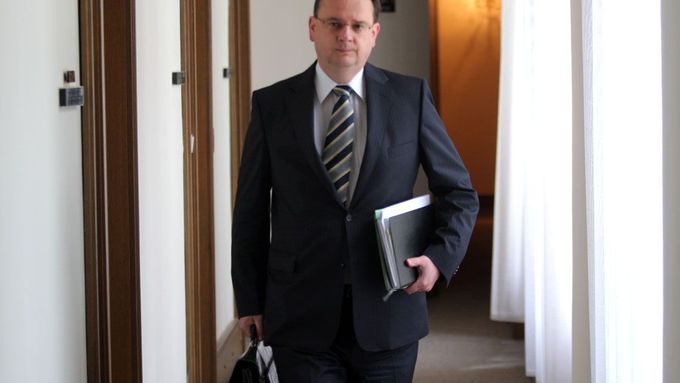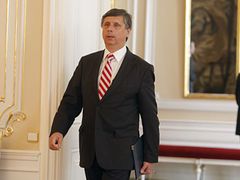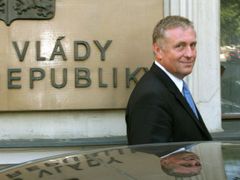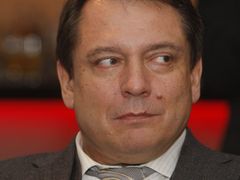Prague - If you were to pick one EU member state that could serve as an example of how a democracy can be malfunctioning, which country would you choose? Italy? Or Belgium?
Looking at the last eight years, it appears that the club of EU countries with chronically unstable politics has a new member: the Czech Republic.
Since 2003, the Czech Republic has had eight governments and six prime ministers. It is more than any other country in the EU. The second is Latvia with the same number of government but "only" five prime ministers.
Read more: After cabinet reshuffle, Czech gov crisis ends. For now
Read more: Fitch watches if Czech govt crisis will affect reforms
According to experts, there are three main reasons behind this. First, Czech prime minister has a weak constitutional role. Second, every government coalition is being torn apart by internal conflicts of interest groups. And, third, inexperienced politicians do not know how to solve political crises.
A new Italy?
Since 2003, most EU countries has had two legislative elections. Because of that, eighteen of them had no more than four governments and three prime ministers in this period
Another seven EU countries, for example Hungary, Rumania, or Belgium, had some serious political problems. In spite of them, they have had no more than five governments in the last eight years.
If the Czech politics retains its current pace and there will be another three governments until 2013, it will match Italy's record from the second half of the 1990s.
Also, in terms of the number of prime ministers, the Czech Republic may quite easily match Italy's record from the 1980s, when it had eight prime ministers. Since 2001, the Czech executive branch has been ruled, in the chronological order, by Špidla, Gross, Paroubek (all Social Democrats), Topolánek (Civic Democrat), Fisher (caretaker government) and Nečas (Civic Democracy). This means that the Czech Republic is only two prime ministers away from matching Italy's 1980s record.
Read more: Czech government seeks support of turncoats to survive
Read more: Czech govt party disintegrates, coalition threatened
Unstable parliamentary majorities
In the EU, political scandals are the most common cause behind governments failing to complete their electoral terms. In the Czech Republic, they caused the fall of Gross and Topolánek's cabinets.
Another important factor are proportional voting systems creating unstable multi-party coalitions. That's why governments change a lot in Denmark, Belgium, and Netherlands. However, the political stability in these countries is maintained by prime ministers capable to create political consensus. Guy Verhofstadt presided three Belgian governments in 1999-2008, Andres Foght Rasmussen ruled three Danish governments in 2001-2009, and Jan Pieter Balkenende was the head of four cabinets in Netherlands in 2002-2010.
The political systems in Latvia and the Czech Republic are similarly unstable. However, in the last years, no prime minister in the Czech Republic was able to survive for more than three years, mostly due to the deep political polarization.
The political instability of the Czech Republic is mostly being explained by the fact that the country's proportional electoral system fails to create solid parliamentary majorities which would enable to form stable governments.
"The election system has caused that in 2002 and 2006 (legislative elections) did not emerge any significant parliamentary majority," said Lubomír Kopeček from the Masaryk University.
However, the recent government crisis in the Czech Republic showed that even a comfortable majority of 118 out of 200 seats does not guarantee stability.
Constitutional reform needed
That's why Kopeček suggests some constitutional mechanisms to stabilize the position of governments. One way to go could be a so-called negative vote of confidence, used in Sweden and Norway. For a government to be established, it does not have to be supported by a majority of deputies - it is sufficient when a majority of deputies does not vote against it.
Or, in a constructive vote of no-confidence, used for example in Germany or Poland, the no-confidence motion is connected to the vote of a new government. In this way, the old government is replaced by a new one without any power vacuum. Poland adopted this measure after government crises of the 1990s, when there were eight governments and seven prime ministers in seven years.
After the constructive vote of no confidence was introduced and the political role of Polish president was limited, the pace of political change slowed down to six prime ministers in 14 years.
"However, a constitutional reform is being discussed (in the Czech Republic) since 1996 and nothing has been done yet. If politicians do not find themselves under pressure to really do something, we may be talking about instability for the next 15 years," said Kopeček.
Conflicts between interest groups
Other analysts believe that even a constitutional reform would not be enough. "The government is unstable because of corruption scandals, ministers are not able to communicate with the public, and so every secret recording make them resign," said Jan Bureš from the Metropolitan University.
Bureš believes that the root of the problem is in the incompetency and inexperience of politicians. According to him, the end of Topolánek's second cabinet (2007-9) showed this. "Back then, nobody had a strategy for what to do next," said Bureš.
Vladimíra Dvořáková from Prague's University of Economics agrees that periodic crises in the Czech politics are an anomaly. "They do not come from the society, because we do not have an anti-systemic party, we do not have an extreme right-wing, we are not divided religiously, economically, or ethnically. They (periodic crises) are the consequence of a struggle between economic groups. It takes place between the parties, but also inside them," said Dvořáková, explaining why even a comfortable 118/200 majority failed to bring in stability to the Czech politics.
According to her, the government works on the basis of clientelism, and thus it resembles the pre-1991 Italian politics.
The struggle of regional and profession groups to create and maintain cash flows from the public sphere into the private sphere is also undermining efforts to fight corruption.
Another factor that contributes to the instability is that politicians often ignore established rules. "For example, every crisis is solved differently," said Dvořáková, referring to unpredictable interventions of Czech President Václav Klaus into the parliamentary politics. Most recently, Klaus refused to accept the resignation of two ministers proposed by PM Nečas.
Dvořáková suggest three necessary measures that would separate economic interests from the politics. First, a bill on public service should be introduced, preventing politicians from influencing the work of ministries, and setting a clear responsibility for handling public money. Second, ministries should get rid of most deputies and advisers, who can decide the fate of billions in taxpayers' money without any responsibility. And finally, it is necessary to strengthen the control of how are used the money from EU funds.














